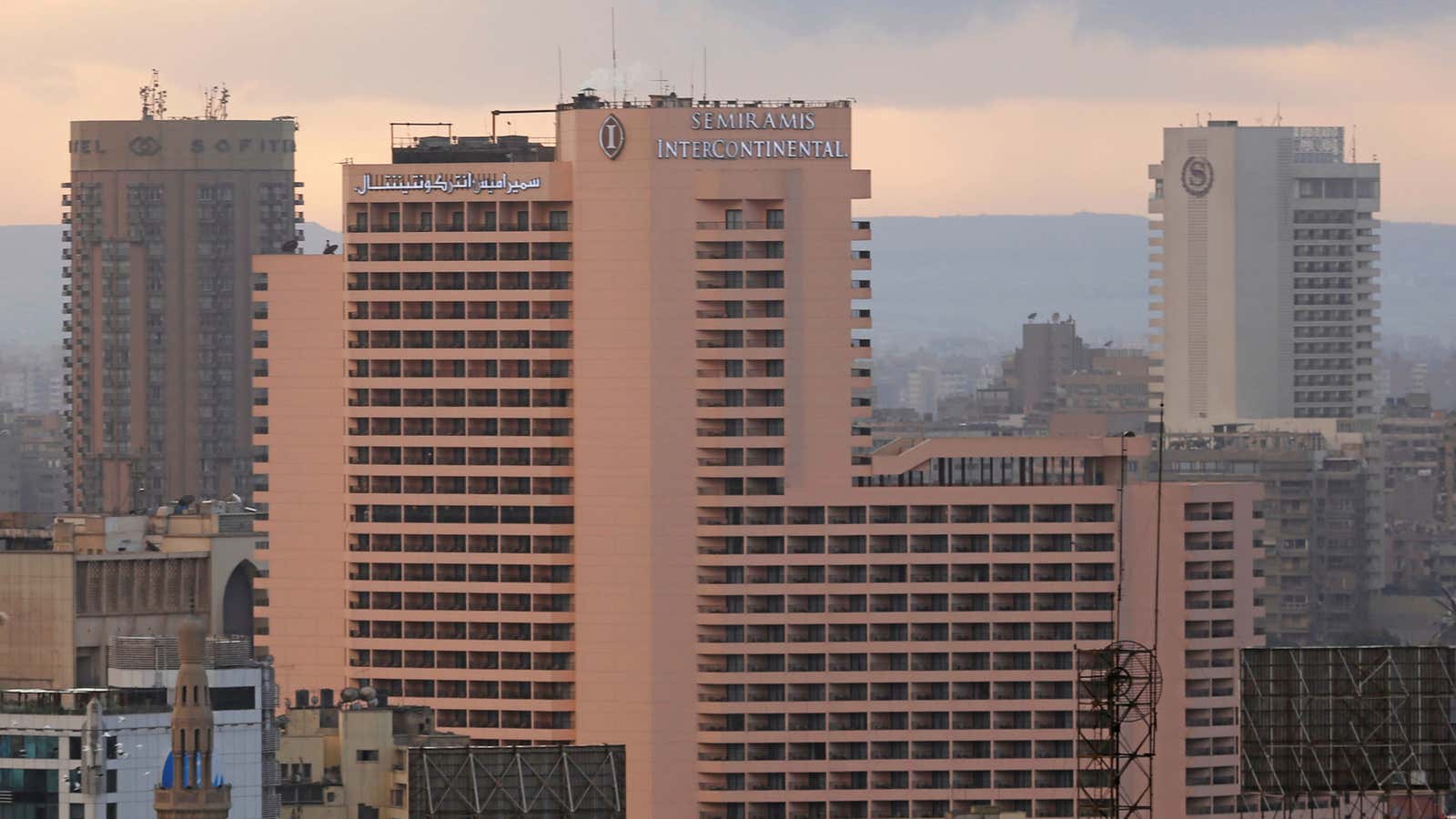The hotel sector in Africa is thriving, recording a steady improvement in demand and performance, drawing financier interest, and constituting an active segment of the real-estate investment market.
But as a new study from real-estate consultancy Knight Frank shows, the current supply is concentrated in a small number of markets, with several nations hosting the largest number of hotel networks. South Africa’s major cities, Johannesburg and Cape Town, are together home to 30% of the continent’s branded hotels. This is followed by chain hotels and resorts in major cities in Morocco, Egypt, and Tunisia, besides the tourist islands of Mauritius, Seychelles, and Zanzibar, where the demand is driven by both business travelers and vacationers.
In total, more than half of the continent’s capital cities have fewer than five chain hotels each.
Over the last decade, global and local hotel chains have targeted Africa as a growth region due to the relative scarcity of quality hotels and the undersupply in room provisions. Africa is also home to fast-growing cities with large populations and strong economic footing, who are increasingly drawing a record number of tourists.
As such, brands like Hilton and Marriott have been expanding their portfolio, going as far as converting existing hotels into branded properties. Groups like Switzerland’s Mövenpick, the UAE-owned CityBlue, Thailand’s Dusit, and the Barcelona-headquartered Mangalis have also embarked on projects to actively grow their presence in Africa.
Yet the African hotel sector still faces challenges that keep undermining its true potential. Delays in approvals, access to finance, high construction costs, and severe power problems hamper the kickstarting of some of these projects. The sector is still dominated by upscale hotels, too, pushing the average daily rates to $107, a fee that could hamper the burgeoning domestic tourism boosted by a growing middle class.
Airbnb, the hotel industry’s bête noir, has also spread across the continent boosting its listings to over 100,000. But with hotel occupancy rates standing at 62% as of April, Knight Frank says the home-sharing platform is “yet to have a discernible impact on African hotel performance.” Yet its rise as an alternative option has demonstrated there’s “demand for new, flexible, and affordable accommodation types across the continent.”
